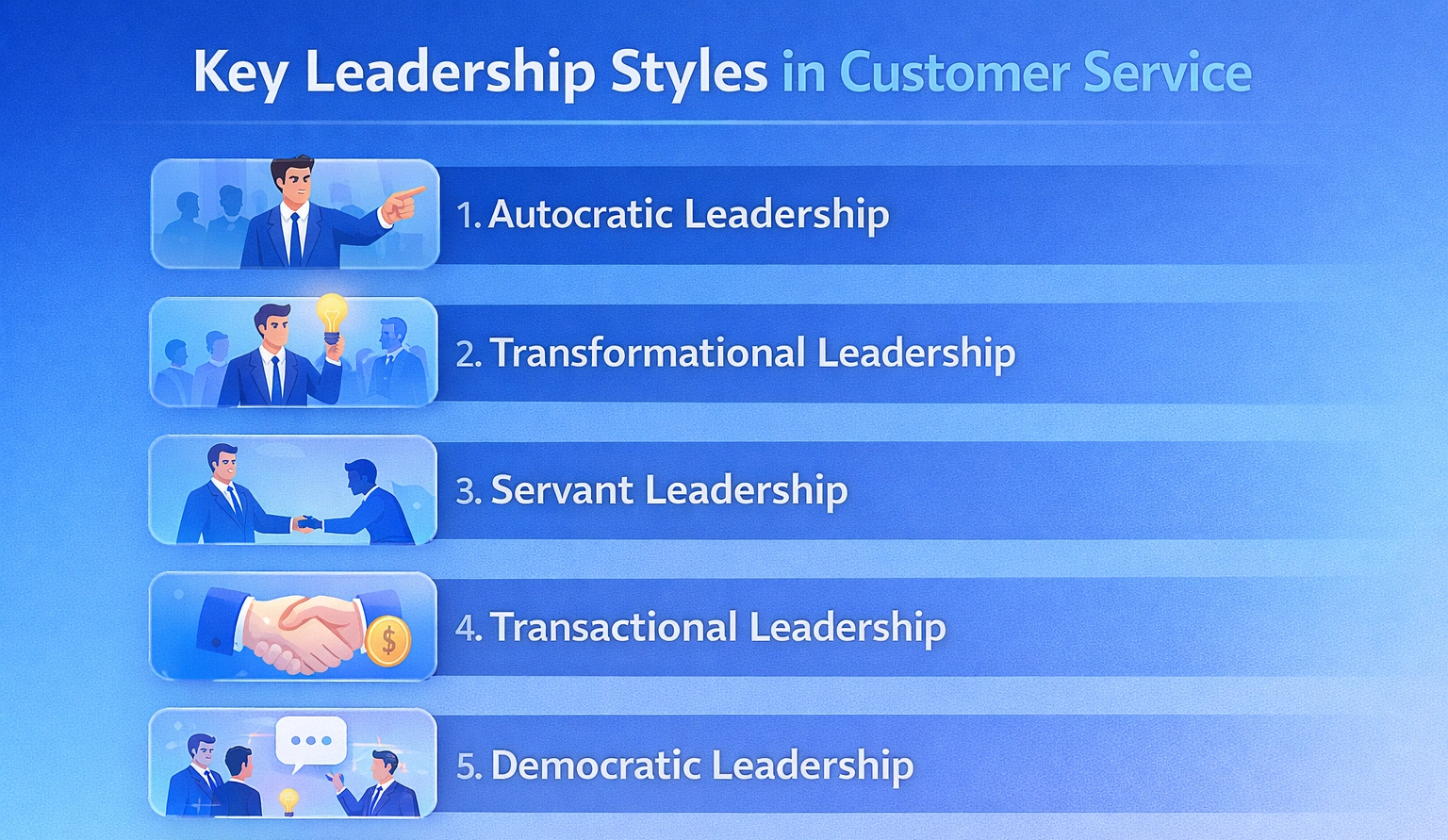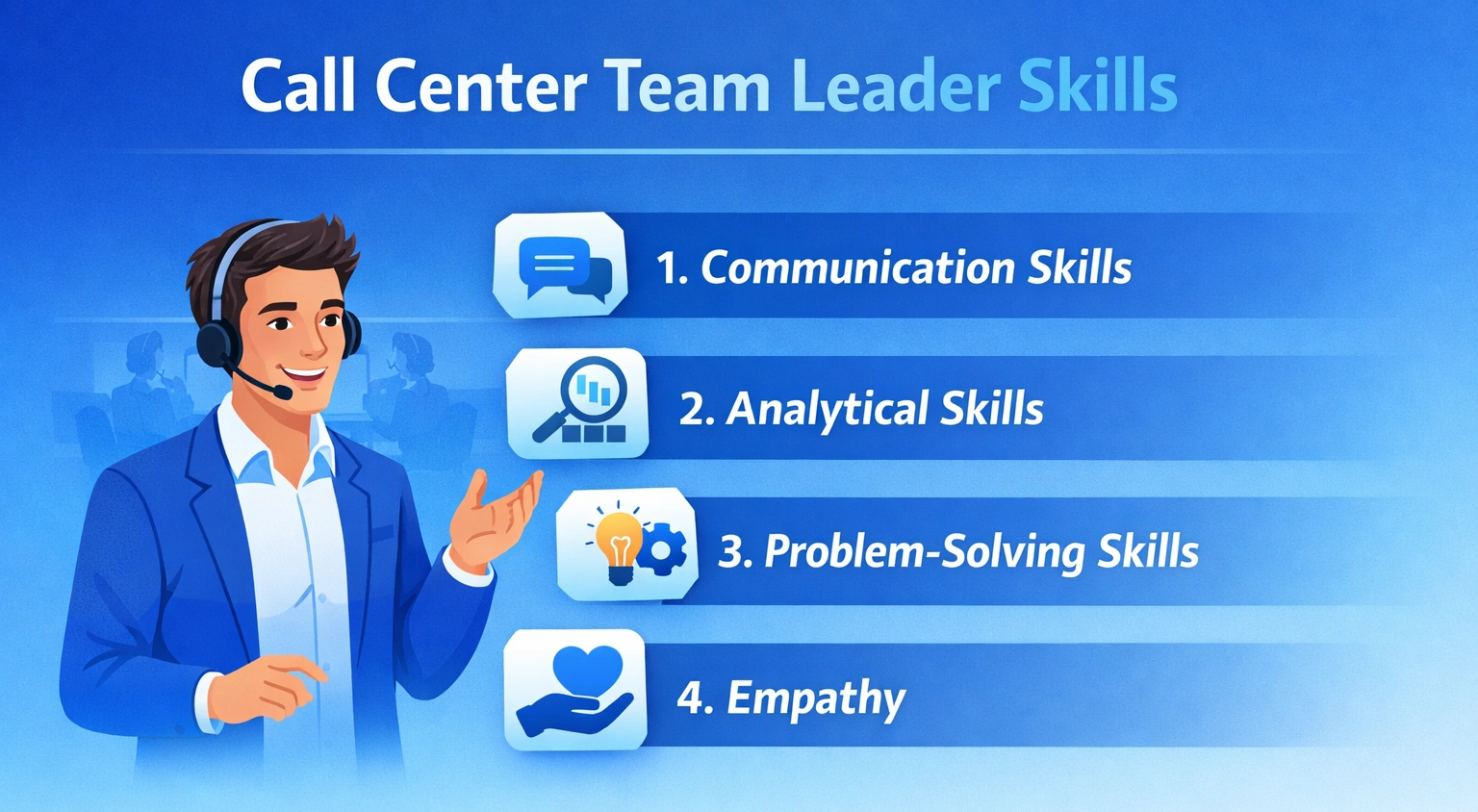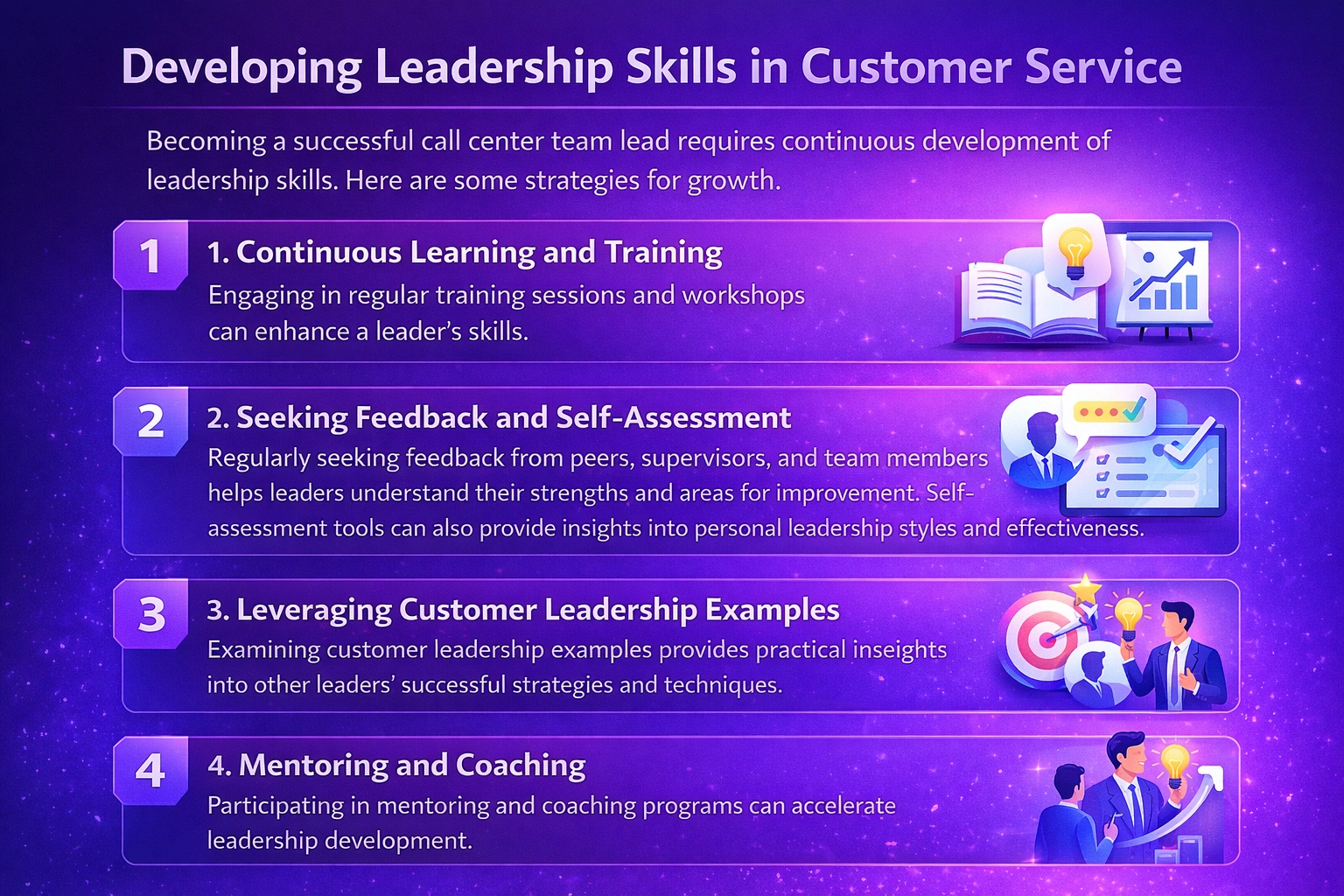A lead generation call center drives business growth by converting prospects into qualified leads. Team leads play a vital role, leveraging leadership styles, core skills, and KPIs to boost performance. From autocratic to servant leadership, the right approach shapes outcomes. Equipping leaders with AI tools further enhances customer experience. Choosing the right leadership path can transform results, what leadership style will shape your call center’s future?
Boost your call center’s lead quality today.
Why a Lead Generation Call Center Is Crucial for Business Growth
Before diving into the details of lead generation call center, let’s define it!
A lead generation call center focuses on identifying, contacting, and qualifying potential customers through outbound or inbound calls, helping businesses build a strong sales pipeline and boost conversions.
A lead generation call center plays a pivotal role in driving consistent revenue and pipeline growth. Unlike generic customer service centers, these are tailored to engage prospects, qualify leads, and hand over sales-ready opportunities to your team. Here’s why they’re so critical:
1. Directly Fuels Sales Pipeline
Lead generation call centers are built to identify, nurture, and qualify leads. This ensures your sales team focuses only on warm prospects, significantly improving closing rates.
2. Improves Efficiency of Sales Teams
By filtering out unqualified leads, a call center prevents your sales reps from wasting time. The division of responsibilities improves productivity and shortens the sales cycle.
3. Supports Targeted Outreach
These centers often use data-driven strategies to focus on specific buyer personas or industries, increasing the relevance and impact of outreach efforts.
4. Delivers Consistent Lead Flow
A well-structured lead generation call center ensures a steady stream of qualified leads. This consistency helps sales and marketing teams plan better and meet monthly or quarterly goals.
5. Enhances Customer Insights
Every interaction in a lead generation call center offers valuable data—buyer objections, decision-making triggers, preferred communication styles. This intelligence can be used to refine messaging and campaigns.
6. Scales Quickly With Business Needs
As business grows, a call center can quickly adapt to handle more volume, new markets, or product lines, offering scalability that in-house teams may struggle with.
Coach your team leads for peak performance.
Understanding the Role of a Call Center Team Lead
The role of a call center team lead is pivotal in efficiently operating any customer service operation. This leadership position involves overseeing the performance and development of call center agents and ensuring that customer interactions are handled professionally and efficiently.
Call Center Team Leader Job Description
A comprehensive call center team leader job description outlines the expectations and requirements for this role.
The job description also emphasizes the importance of achieving specific KPIs (Key Performance Indicators) that measure the team's success and efficiency.
1. Performance Monitoring and Management

One of the primary responsibilities of a call center team lead is monitoring and managing the performance of their team. This involves using various metrics to assess agent productivity and effectiveness.
2. Coaching and Development
Effective coaching and development are crucial for maintaining high levels of performance and morale within the team. A team leader call center must provide regular feedback, conduct training sessions, and create development plans tailored to individual agents' needs.
3. Handling Escalations
When complex or escalated issues arise, the call center team lead resolves them. This requires strong problem-solving skills and the ability to make quick, informed decisions.
Essential Skills for a Call Center Team Leader
To excel in this role, a call center team lead must possess a diverse skill set, including:
- Communication Skills: Clear, concise communication with both agents and customers.
- Problem-Solving Skills: Ability to quickly and effectively resolve issues.
- Empathy: Understanding and addressing the needs of both customers and team members.
- Organizational Skills: Efficiently managing tasks, time, and resources.
- Analytical Skills: Using data to track performance and identify improvement areas.
Power up lead conversion with smart tools from Convin.
Key Leadership Styles in Customer Service
By leveraging their skills and using advanced tools like Convin, leaders can create a productive and positive work environment that enhances agent performance and customer satisfaction.

1. Autocratic Leadership
Autocratic leadership occurs when the leader makes decisions unilaterally without much input from team members. This can be effective in situations requiring quick decision-making or dealing with inexperienced staff.
2. Transformational Leadership
Transformational leaders inspire and motivate their teams to exceed expectations. They focus on personal development and innovation, making this style suitable for dynamic and rapidly changing environments.
3. Servant Leadership
In servant leadership, the leader prioritizes their team's needs and helps them develop and perform as highly as possible. This style effectively creates a supportive and inclusive environment, which can lead to high levels of employee satisfaction and retention.
4. Transactional Leadership
Transactional leadership is based on a system of rewards and penalties. This style can effectively achieve short-term goals and maintain routine processes but may not be suitable for fostering long-term employee engagement and innovation.
5. Democratic Leadership
Democratic leaders encourage team participation in decision-making processes. This style can enhance team cohesion and job satisfaction but may slow decision-making processes.
Essential Skills for a Call Center Team Leader
A successful team leader in a call center requires a diverse set of skills. These include:
- Communication Skills: Clear and effective communication is essential for managing a team and ensuring everyone is on the same page.
- Problem-Solving Skills: Quickly identifying and resolving issues is crucial in maintaining smooth operations.
- Empathy: Understanding and addressing team members' concerns and motivations can lead to a more cohesive and productive team.
- Organizational Skills: Efficiently managing time and resources to ensure all tasks are completed effectively.
Real-World Examples of Leadership in Customer Service
Examining customer leadership examples provides valuable insights into effective strategies. For instance, a team lead who implements regular training sessions based on call data analysis can significantly improve agent performance.
Career Path and Compensation
Positions such as customer service and call center team leader jobs offer career advancement opportunities. With experience, a team leader can progress to higher managerial roles within the organization.
The effectiveness of a call center team lead is heavily reliant on a diverse set of skills that enable them to manage, motivate, and develop their team efficiently. In this section, we'll explore the critical call center team leader skills necessary for success and discuss how to develop these skills to excel in customer service leadership roles.
Lead smarter, not harder in call centers.
This blog is just the start.
Unlock the power of Convin’s AI with a live demo.

Essential Skills for Call Center Team Leaders

Call Center Team Leader Skills
The role of a call center team lead is dynamic and multifaceted, requiring a diverse set of skills to manage and motivate a team effectively. Team leaders can excel in their roles by developing essential skills such as communication, problem-solving, and empathy and continuously seeking growth opportunities.
1. Communication Skills
Effective communication is the cornerstone of leadership. A call center team lead must communicate clearly and confidently with their team, customers, and upper management. This includes conveying expectations, providing constructive feedback, and facilitating open dialogue within the team.
2. Analytical Skills
Analytical skills are crucial for tracking performance metrics and identifying areas for improvement. Understanding and utilizing KPIs for call center team leaders (KPIs for call center team leaders) leaders can monitor agent performance, customer satisfaction, and overall call center efficiency.
3. Problem-Solving Skills
A team leader in the call center must quickly identify and resolve issues. Whether dealing with a customer complaint or an internal team conflict, problem-solving skills enable leaders to address challenges effectively and maintain smooth operations.
4. Empathy
Empathy is essential for understanding the perspectives and needs of customers and team members. Demonstrating empathy can lead to improved customer interactions and a more supportive, motivated team.
Developing Leadership Skills in Customer Service

Becoming a successful call center team lead requires continuous development of leadership skills. Here are some strategies for growth
1. Continuous Learning and Training
Engaging in regular training sessions and workshops can enhance a leader’s skills. Many organizations offer leadership development programs that cover essential topics like conflict resolution, team management, and effective communication.
2. Seeking Feedback and Self-Assessment
Regularly seeking feedback from peers, supervisors, and team members helps leaders understand their strengths and areas for improvement. Self-assessment tools can also provide insights into personal leadership styles and effectiveness.
3. Leveraging Customer Leadership Examples
Examining customer leadership examples provides practical insights into other leaders' successful strategies and techniques. Learning from these examples can help team leads implement best practices and innovative approaches in their teams.
4. Mentoring and Coaching
Participating in mentoring and coaching programs can accelerate leadership development. Experienced mentors can offer valuable advice, share experiences, and guide navigating complex leadership challenges.
Automate insights with Convin’s AI tools.
Key Performance Indicators (KPIs) for Call Center Team Leaders
For a call center team lead, tracking and measuring success through Key Performance Indicators (KPIs) is essential for ensuring the team's effectiveness and maintaining high levels of customer satisfaction. KPIs provide a quantifiable measure of performance and highlight areas for improvement. Here are some critical KPIs for call center team leaders:
1. Average Handle Time (AHT)

AHT measures the average duration of customer calls, including talk time, hold time and any follow-up work. Keeping AHT low while maintaining quality service is a key indicator of efficiency.
2. First Call Resolution (FCR)
FCR tracks the percentage of customer issues resolved on the first call without requiring follow-ups. High FCR rates indicate effective problem-solving skills and comprehensive agent training.
3. Customer Satisfaction (CSAT)
CSAT scores are derived from customer feedback and surveys, reflecting their satisfaction with the service provided. This KPI is crucial for assessing the overall quality of customer interactions.
4. Service Level
This KPI measures the percentage of calls answered within a specified time frame. It is a critical metric for evaluating the team’s ability to handle call volume and maintain prompt service.
5. Agent Turnover Rate
The turnover rate indicates the percentage of agents leaving the team over a specific period. Lower turnover rates generally reflect better leadership, job satisfaction, and work environment.
Identifying the Best Leadership Style for Customer Service

A call center team lead is critical in driving the performance and satisfaction of both employees and customers. Choosing the most effective leadership style can significantly impact the success of customer service operations.
1. Transformational Leadership
Transformational leadership is often considered one of the most effective styles in customer service.
Pros
- High levels of team engagement and motivation
- Encourages innovation and continuous improvement
Cons
- Requires strong communication and interpersonal skills
- It can be time-intensive due to the focus on individual development
2. Situational Leadership
Situational leadership involves adapting leadership styles based on the maturity and competence of team members and the specific circumstances.
Pros
- Highly adaptable to different situations and team needs
- Provides tailored support to individual team members
Cons
- Requires a deep understanding of various leadership styles
- It can be challenging to switch styles seamlessly
3. Servant Leadership
Servant leadership prioritizes the team's needs, helping them grow and perform to their highest potential.
Pros
- Builds strong loyalty and trust within the team
- High levels of job satisfaction and employee retention
Cons
- This can be perceived as a lack of authority
- It may require a longer time to see the results
4. Autocratic Leadership
Autocratic leadership is characterized by individual control over all decisions with little input from team members.
Pros
- Quick decision-making process
- Clear direction and control over operations
Cons
- Low team morale and engagement
- Limited creativity and input from team members
Enhancing Customer Experience with AI-Powered Call Center Solutions

Convin can significantly enhance the effectiveness of a call center team lead by providing advanced AI-backed tools for performance monitoring, real-time coaching, and detailed analytics.
Convin’s platform automates the recording, transcription, and analysis of customer interactions, offering valuable insights through custom scorecards that identify agent performance trends and areas for improvement.
Additionally, Convin’s automated coaching capabilities streamline the training process, enabling team leads to focus on strategic decision-making and fostering a supportive team environment. This holistic approach not only boosts agent performance and customer satisfaction but also drives the contact center's overall efficiency and success.
Book your Convin demo now!
Embracing Effective Leadership in Customer Service
Effective customer service leadership is pivotal for the success and growth of any organization. A call center team lead is crucial in driving performance, maintaining high customer satisfaction, and ensuring that the team operates smoothly and efficiently.
By understanding the various leadership styles and their applications, leaders can adapt their approach to meet the specific needs of their team and situation.
By understanding and implementing the appropriate leadership styles, a call center team lead can significantly enhance team performance and customer satisfaction.
FAQs
1. What is the most effective leadership style in customer service?
Transformational leadership is the most effective leadership style in customer service. It motivates and inspires teams to exceed expectations by fostering innovation, personal development, and a positive work environment, leading to high employee engagement and customer satisfaction.
2. What is the most effective leadership style?
The most effective leadership style depends on context. Still, transformational leadership is widely regarded for its ability to inspire, engage, and motivate teams to achieve exceptional results, promoting innovation and personal growth.
3. What are the leadership skills in customer service?
Essential leadership skills in customer service include effective communication, empathy, problem-solving, adaptability, and the ability to motivate and inspire teams. These skills ensure high performance, customer satisfaction, and a supportive work environment.
4. What are the four types of leadership styles?
The four leadership styles are transformational, autocratic, servant, and situational. Transformational leadership inspires and motivates, autocratic leadership emphasizes control and quick decision-making.




.webp)



.avif)